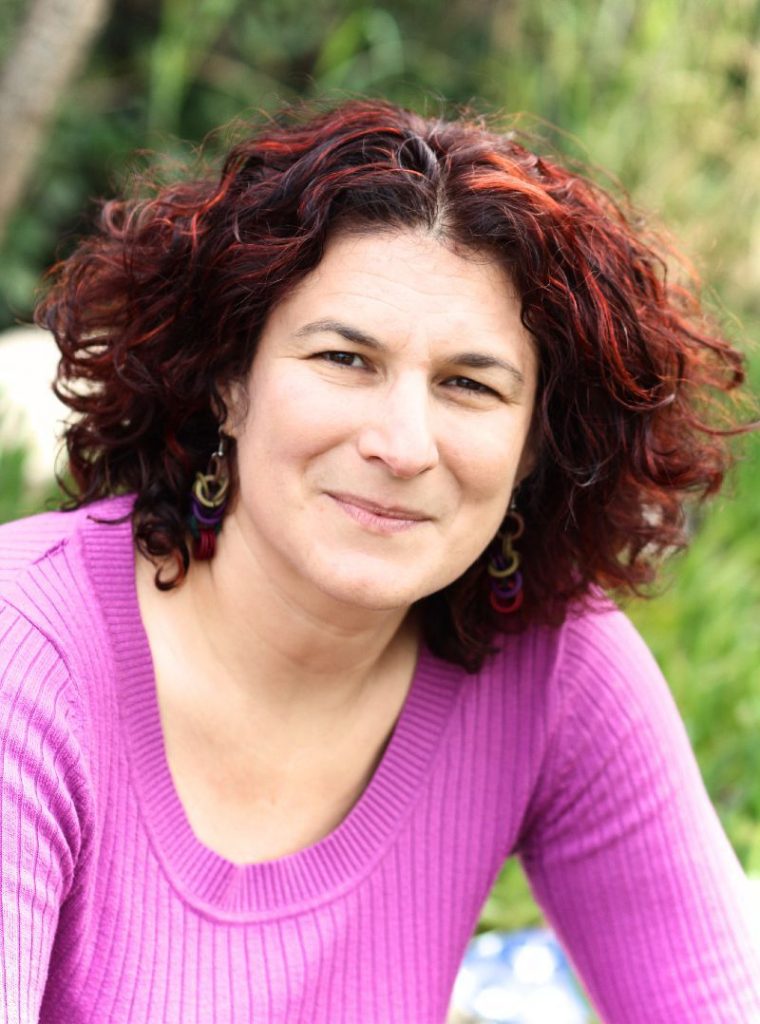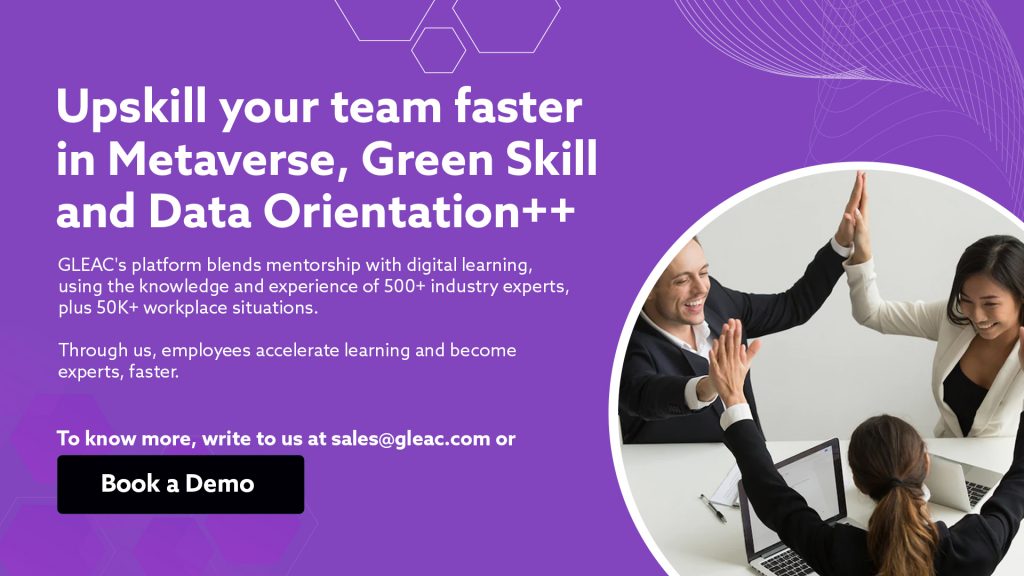I have no regrets. The ability to think ahead is a rarity. Not everyone can put aside their short-term goals and think about making a real difference in the long term. But Grace Rachmany – DAO consultant and published author – has the superpower ability to separate the present from the future and focus on what’s actually important for the survival of humanity and our planet.
I asked Grace a few questions about the DAO, Metaverse, and the soft skills needed for this sector. Each answer of hers was a revelation in itself! Check out what she had to say.

GLEAC: If you had to explain your work to a 5-year-old, how would you do it?
Grace: I wish I had wheels. I want wheels instead of legs and feet, but I can’t have them because I have a skeleton and circulatory system that don’t allow wheels. No matter how much I wish for it and decide to create an animal with wheels, I cannot do it.
In the same way, no matter how much we wish for ecological restoration and social equality, we cannot have it unless we change the circulatory system of the economy. The circulatory system of the economy is money and growth. In this circulatory system, a dead tree is worth more than a live tree and a dead fish is worth more than a live fish.
To change the outcomes, we must change the circulatory system and the skeletal structure of our economy. Fortunately, it is not like my circulatory system: people invented money and they could invent something new. My work is to invent something new.
GLEAC: If you could, what is the one thing you would change about your work functions?
Grace: My biggest obstacle these days is how much time I spend at “paid gigs” versus the important work of updating our economic systems. Currently, my team and I are working on getting enough funding so that day-to-day survival is no longer an issue and we can focus 100% on the work that needs to be done for planetary survival.
GLEAC: What hard skills and soft skills are needed for your job?
Grace: Communication skills–in all forms–are the most versatile skills anyone can acquire. The hard skills in that realm are writing and presentation skills. My ability to speak and write with clarity has brought tremendous benefits. No matter what your career, if you can develop your writing and speaking, it will amplify your success and impact. The soft skills in the communications realm are listening and collaborating.
Many people think that people are just naturally good speakers, listeners, and networkers, but nothing could be further from the truth. Seeking out personal development courses is one of the best things anyone can do for their career. In the technology field, you’ll sometimes hear people talk about how engineers are “on the spectrum” and can’t be taught these communications skills. I find that approach to be inhumane and a form of intolerance. Anyone can be taught to improve their skill set in any area, and communication is just a skill set.
GLEAC: With all the changes happening in the world, is your sector going to survive?
Grace: Before I answer the question, I want to question the question. Why is it important that a “sector” survive? A sector is not a living thing. Too much of our lives are focused on having industries and companies survive long after they should be dead. The coal industry should have died long ago, but it didn’t because people are busy keeping it alive. The net result is that industry is killing living things and “keeping alive” things that are not living.
In terms of business, none of the sectors are going to survive, which is why I focus on long-term solutions for new forms of economic activity. Almost all industries are dependent on cheap energy in the form of petroleum, and the ability to create tremendous amounts of waste with no implications. This is what Nathan Hagens refers to as “energy blindness”. The energy and materials we use to produce energy are limited in quantity and we are already on a downward slide in terms of the availability of these materials.
In terms of what I do, I am working with pioneers in figuring out how we can get closer to circular economies, work in harmony with planetary boundaries, and eliminate the growth imperative of our current economy. Because my work is directly addressing the survival of the planet and of humanity, as long as there are people trying to survive, my work is viable.
GLEAC: What is your superpower soft skill?
Grace: My superpower is the ability to tell the bald truth. In my industry (blockchain), many of the underlying assumptions about tokenomics are incorrect, but most people are going along with it because it sounds pretty good to someone who doesn’t want to go into the math. Plus, it’s making everyone a lot of money, so nobody wants to rock the boat. We’re also seeing failures in terms of the most hopeful projects, like DAOs. To move forward, we need to have open conversations about the problems and failures, not just try to cover them up and pretend it will be alright.
For example, with Ethereum 2.0–the entire industry is counting on this to work, but after two years, we’ve seen incremental improvements. Many projects moved to other blockchains, but we’ve not asked some fundamental questions about the blockchain architecture.
Honest talk is uncomfortable for a lot of people but it allows me to see farther into the future than other people. This isn’t always an advantage: many of my ideas are several years ahead of what people are able to conceptualize. I might be richer and more successful in my career if I saw things in a shorter-term timeframe, but as with anything, our strengths are simultaneously our weaknesses.
GLEAC: 3 must-have soft skills for newbies looking to enter your sector?
Grace: To make a real difference in the world people need to be curious, persistent, and resilient. So much of what we’ve been told needs to be unlearned. When I first recognized how the financial system is broken, I had to undo 50 years of brainwashing and willingness to be blind to the facts that were in front of me.
So first of all, young people need to be curious and willing to think out of the box. The current systems are crumbling: where is the source of that? What are the actions you can take towards solutions? Once you realize the extent to which things are not working for most of humanity and for the planet, you need resilience, not despair. There is hope and we can make things better, but if you fall into despair you become helpless. Nothing is more rewarding than committing your life to making a real change in the world.
Finally, we are talking about changes that can take a decade or a century to see to fruition. Persistence is key. Perhaps you won’t see the changes you are making until you look back over several years.
GLEAC: In hindsight, if you could change one thing about your career, what would it be and why?
Grace: Sometimes I think it would have been better if I were savvier about having passive sources of income or if I had gotten more money from the shares of companies where I worked. In other ways, I think if I had become richer, I would not see the problems in the economy the same way I see them today. Again, these things are intertwined. How do I know that some mistake I made wasn’t the very thing that brought me to the success I have today? I have no regrets.
The #GLEACMentorCommunity enables its mentors to network with like-minded individuals from over 47 countries through sharing knowledge, unlocking business opportunities, access to all of GLEAC’s monthly events, and much more!
Interested in being part of our expert mentor community?
Email us at: mentor@gleac.com or apply through this link.
For more awesome content from our other mentors check out our blog (www.gleac.com/blog). Visit at our website (www.gleac.com) and also for our NFTs head on over to Lovely Humans (www.lovelyhumans.io) to learn more!


